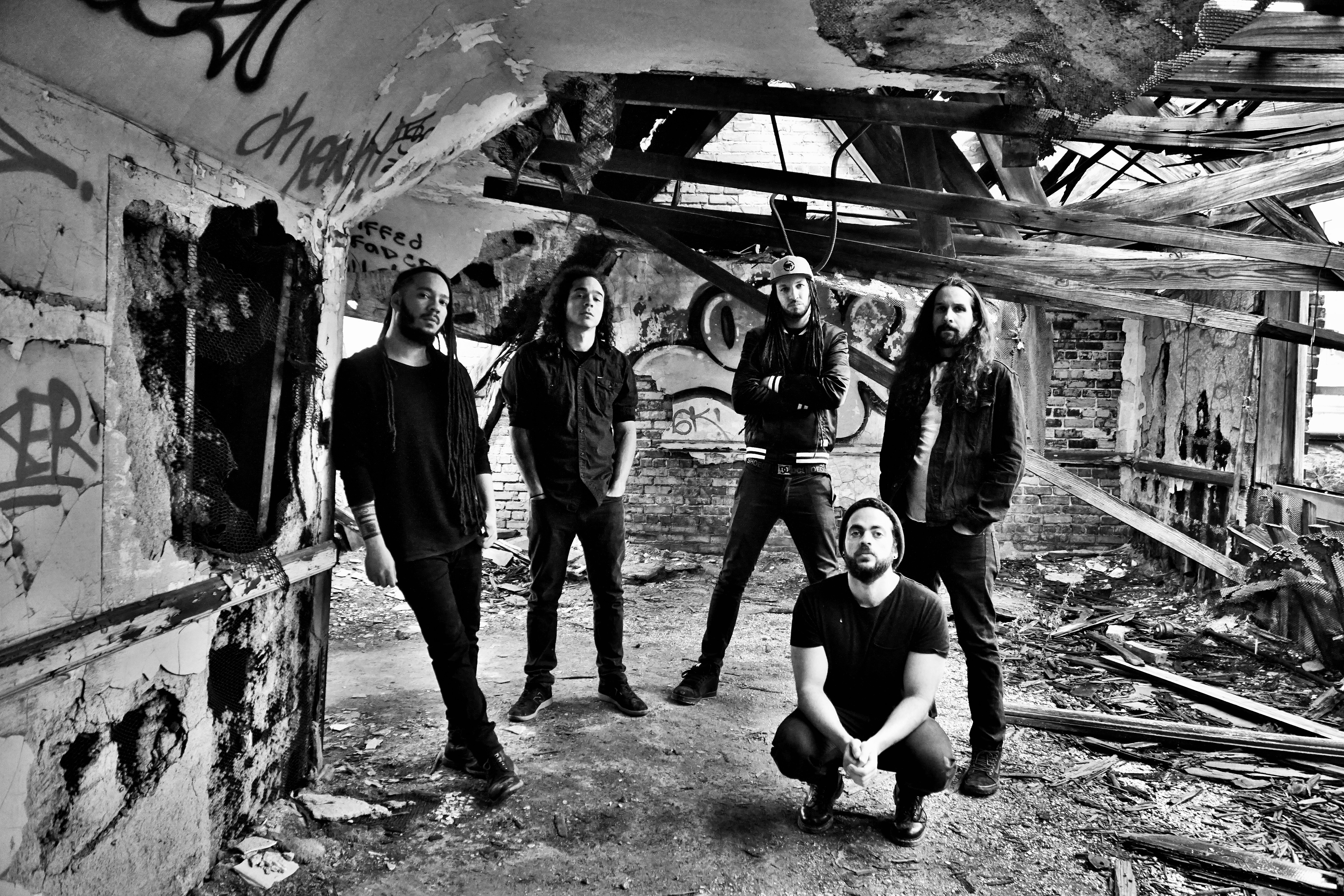
Look out for La Armada
A Chicago-based band from the Dominican Republic, La Armada fuses metal, punk, and hardcore, as well as the musical traditions of their native country, in…
La Armada has been building a base in its adopted hometown of Chicago and in cities throughout the U.S. since its members — Javier Fernandez (vocals), Juan Alberto Marte (bass), Luis Martinez (drums), Jonathan Salazar (guitar), and Paul Rivera (guitar) — arrived from the Dominican Republic close to a decade ago. Their current East Coast tour will bring them to Kung Fu Necktie in Philadelphia on Aug. 23 in support of their new album, Anti-Colonial Vol. 1 (released in March 2018).
Calling from Chicago in a phone interview before taking off on tour, guitarist Paul and bassist Juan Alberto explained how they have transformed their music since starting out in the punk scene in their hometown of Santo Domingo, Dominican Republic, in 2001. The two artists also talked about the ways that the group has been able to fuse musical traditions to deconstruct colonialism as it continues to oppress people, communities, and nations throughout the world today.
Paul: So this year has been really good for us. We released our latest album, which is Anti-Colonial Volume 1. Immediately after that, we got to take it on the road with a Canadian band called Propagandhi, supporting them throughout the U.S., Mexico, and in Canada. Their politics align with ours. They’re kind of one of the benchmark bands in this sort of scene. So it’s very special for a band like us, who came from a different country and all that, to be able to present our music in a big platform. Right now, for the summer and fall we’re concentrating on doing shows on our own. We’re playing the Midwest, and in two weeks we leave on tour to the East Coast for about a week. We have shows in Philly, New York, Boston, New London, in Connecticut, with a special show in New York that’s actually a benefit towards ProBAR, which is an organization that’s helping families that are separated at the border. And then for the rest of the year we’ll be touring in support of the record. We’re going to make it back up to Canada, and we’re going to make it to the Pacific Northwest of the U.S. as well.
Juan Alberto: When we chose that name, a lot of people think that we’re talking about colonialism back in the day, when colonialism started in the Americas, but we actually try to talk about current issues: what’s going on in Puerto Rico, what’s going on in Palestine, what’s going on in Venezuela right now. With the current political climate in the U.S., we feel that it is appropriate to talk about colonized territories and what goes on with the people that live in those territories.
Paul: Exactly. So it’s not just stories of when the Spanish came and colonized their island and whatnot. It’s more so the modern daily approach of today...Also things that colonize your mind, too, and the minds of people in countries like where we’re from, which could be big companies marketing to you, being dishonest, trying to sell you things that you really don’t need, just the excess junk that’s out there - we consider all these things a form of modern-day colonialism.
Juan Alberto: I feel like the second option. I feel like we reach to a crowd that is not necessarily a fan of this type of music, but they like what we have to say, they relate to what we’re saying.
Paul: That’s definitely a part of it. There’s also the fact that as a band, we embrace that struggle, we embrace the challenge of presenting our music in a platform where people might feel uncomfortable about what we’re talking about. Or haven’t really given it much thought. We like that because in the scene where we come from, where we started playing, which is the punk scene... it’s very normal for bands to be talking about these kinds of political issues. Obviously for us it goes a bit deeper, being a band of immigrants, being a band of people of color, we share our unique experience which a lot of times can be broader, shall we say, than a band that just grew up in the U.S. But it’s kind of expected of you in the punk scene to talk about these things, so we actually enjoy when we get to branch out and play, for example, a metal show where, traditionally, it’s less political or social-themed, and it’s more just other stuff. And we like that. We like the challenge of being able to step up to a crowd that maybe isn’t exposed to this kind of message day to day. We like to be able to present what we’re doing in that platform, and for the most part, you know, we have to admit it goes over really well, so it’s very gratifying when after a show or the next day people message you and say, 'Hey, we appreciate that you guys are here, we appreciate the message that you’re spreading.'
Juan Alberto: Sometimes it can go bad too...There’s definitely been confrontation, but we’ve got to be ready for that, too.
Paul: Especially, you know, we live in the Midwest, we play a lot around here, we play a lot of red states, red cities. We also gotta be ready and just aware of our surroundings.
Paul: No I don’t think so. I think when people are seeing us live they’re captivated by the performance, and the language issue kind of becomes a secondary.
Juan Alberto: We started around the 2000s, the late 2000s, in the Dominican Republic in the city of Santo Domingo...We were pretty active for the second part of the 2000s until we moved to the United States around 2007.
Paul: You’ve got to imagine that it’s a small island, a small city that we lived in, so you know the amount of people that were into this kind of stuff is very minimal and there’s big taboos assigned to it, so to be a punk in a city like Santo Domingo, to express yourself in that way and to play this kind of music, it’s not normal at all. So if you’re gonna do it in a place like that it’s because you really feel it in your heart and you really want to go after it.
Paul: Yeah, there’s only so much you can do in the music scene, especially in the heavy music scene in a country like ours, so we were either going to move from here to keep doing the band, or we’re all just going to end up here working at a bank or a call center or something like that. And you know, luckily, we’re all five motivated individuals and decided to leap and pursue the band out here.
Juan Alberto: First of all, we’ve always tried to maintain our connection with the Dominican Republic. We’ve traveled there once, twice a year, we try to play at least once a year there, all of our families are still there... Definitely after all these years you start to feel more at home here in a lot of ways, especially everything music and band-related... We’ve been able to build a community here in the city of Chicago, with a lot of people from Latin America, different places in Latin America... I always say, when you’re in the U.S., you stop being Dominican and you become a Latino... There’s so many different people from all different, many countries in Latin America, you start building communities and you start finding similarities in our cultures. So definitely a lot of what it means to be in the U.S., it feels like home for us in a lot of ways.
Paul: Especially because we spend so much time working on the band and touring. The band is literally our daily life and a lot of that is tied to the activities we do in the U.S... Mostly because the DR is so small, it doesn’t make sense for us to go play there more than once a year. But as Juan said, all our family is there, our friends are there, and people from there support us a lot — they are always paying attention to what we’re doing and messaging us and rooting for us.
RELATED CONTENT
Juan Alberto: We grew up with a lot of Caribbean music, a lot of music from Latin America, and we come from a place where music is such a fundamental aspect of culture in general that by the time we got into punk rock and metal we had a very broad musical spectrum. We would listen to everything, so we always say we got into this music [by] rejecting our traditional values, a lot of the bad stuff, negative stuff that comes with our culture, like misogyny or like homophobia, racism, xenophobia, all that kind of stuff. We kind of rejected Dominican culture at the beginning, and now that we’re here in the United States, we start to feel homesick, we start to miss our culture, our music, our values and stuff like that. We go through this process where we incorporate our [family], the music that we grew up to, into the music that we’re making right now. A lot of genres like palo, a lot of lines of music we try to incorporate into rock, into punk, into metal, to create our own brand of music. At the end it’s like nothing that you ever heard before.
Paul: Yeah, that’s basically the idea and the musical concept of the band. The more we reach into our identity as Dominicans who are lovers of punk and metal, and all different kind of genres, and the more we work at it the finer we’re able to craft our own thing. We’re not really interested in sounding like the next band, we’re not interested in following any kind of trend or anything like that. We want you to hear a song that if you haven’t heard before we want people to say, 'Oh that has to be La Armada.' There’s a certain swing to what we do. It doesn’t necessarily fall in the same structures as four by four, as pop or rock or even punk does, it’s likely to come in and out, and to do that we rely on those Dominican musical elements.
Juan Alberto: Yeah, a lot of the times when you think of traditional Latino music people think of happy music, like it’s to dance to and stuff like that. But there’s a lot of elements of Latin music that is aggressive...and that’s the aspect that we want to work on.
Juan Alberto: We like that because you’re able to read it in English and Spanish without changing anything.
Paul: See what we did [laughs].
Paul: We definitely try to use it in our favor. So it’s not something that we say, 'hey, let’s write a song where the title can be in English and Spanish and this and that.' It’s more like, as we’re writing music, the opportunity presents itself to be able to use the fact that we’re bilingual, to be able to use it to our advantage in this way. So sometimes if we’re writing the lyrics to a song, there might be a certain section where we can say, 'hey you know what, it might be cool to do this in Spanish in a traditional kind of repetitive merengue pattern,' and we’ll do it. And you know, maybe nobody else will realize what we’re doing, but we do. It works for the song, and it makes us happy to be able to do it and at the end of the day I think it makes the music better and more richer.
Juan Alberto: I think it depends a lot on the subject of the song and what we’re thinking about at the moment. We have songs on that record, for example, we have a song that talks a lot about our experience as immigrants. It’s called "La Esencia," and we wrote that one in Spanish, but we also have songs like "Unquenchable." It's a song about the current political climate in the U.S. and the for-profit immigration prison system here, and we wrote that one in English, because we want the public, the crowds to be able to understand what we’re saying and what we’re speaking about in that one song. So it’s different for each song I would say.
Paul: It would be wrong to say it doesn’t influence what we write, what we feel, and just our overall sense of awareness that we have to have when we’re on the road, so yeah it definitely influences us in various ways. Latino families are being separated at the border as we speak, people are getting deported, racists now have the platforms to come out and harass and express their views, so these are all things that not even as a band but just as people and especially as immigrants this affects us, and you know it affects our families and friends that we have here, so it definitely makes its way into our creative process.
Juan Alberto: Like Paul said, just as people, as a community, I feel like we are being targeted now, we feel like we are being attacked. And most of us in the band, we have green cards. We are still deportable under a lot of circumstances...We always say that we feel like racism comes from the top. So if we’re living under a time where the president is getting away with saying those crazy things with disrespecting women, with disrespecting people of color, people, regular people assume that it’s okay. The president is doing it, why can’t I do it? So we feel that we have a responsibility to be a voice for those that don’t have a voice.
Paul: It’s hard enough being a band and a musician already. It’s twice as hard when you do decide to sing songs in Spanish, when you do decide to have a band name in Spanish. That can close a lot of doors. But you know the one thing that we have is our talent, our music, and our live show. There’s no greater satisfaction than walking into a situation where people are skeptical about what you’re about to do, and then blowing them away. That’s one of the most gratifying things for us.


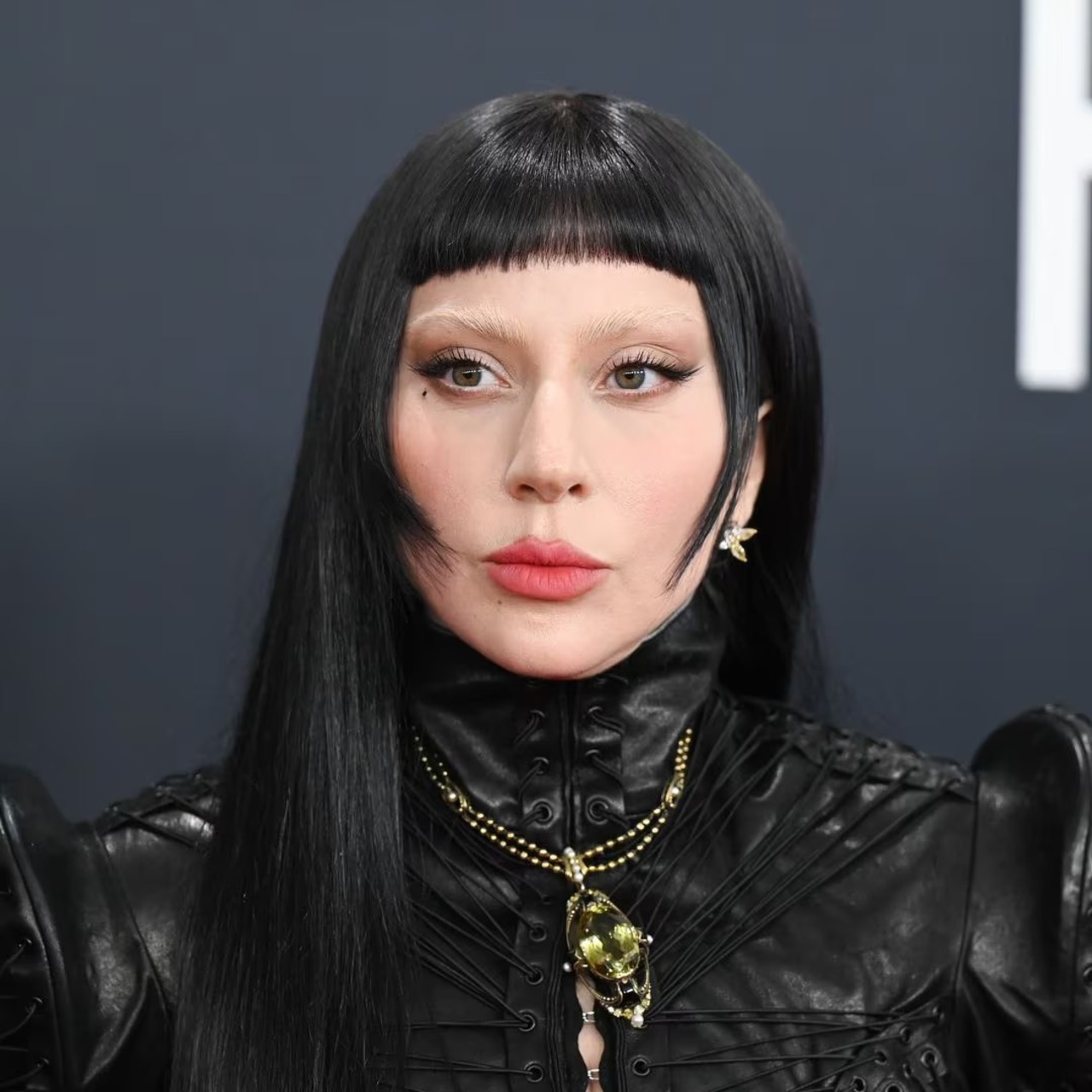
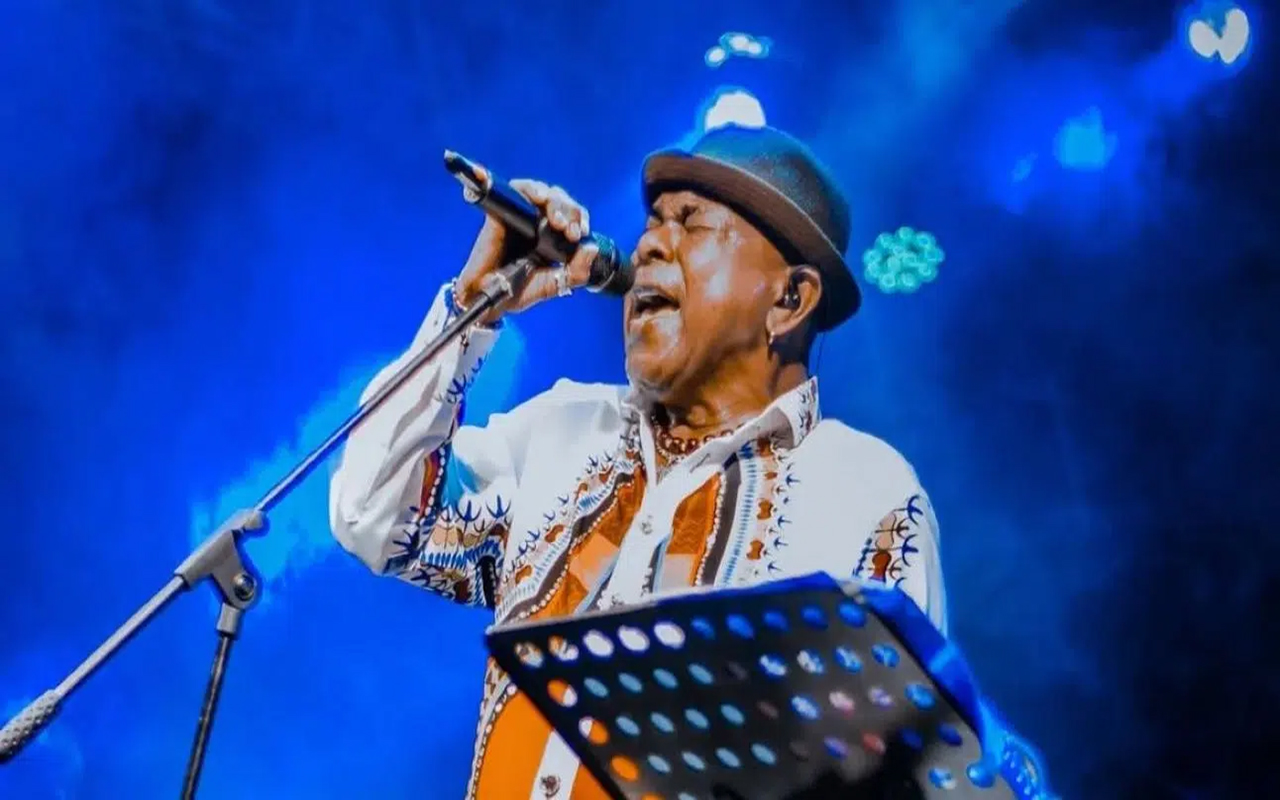
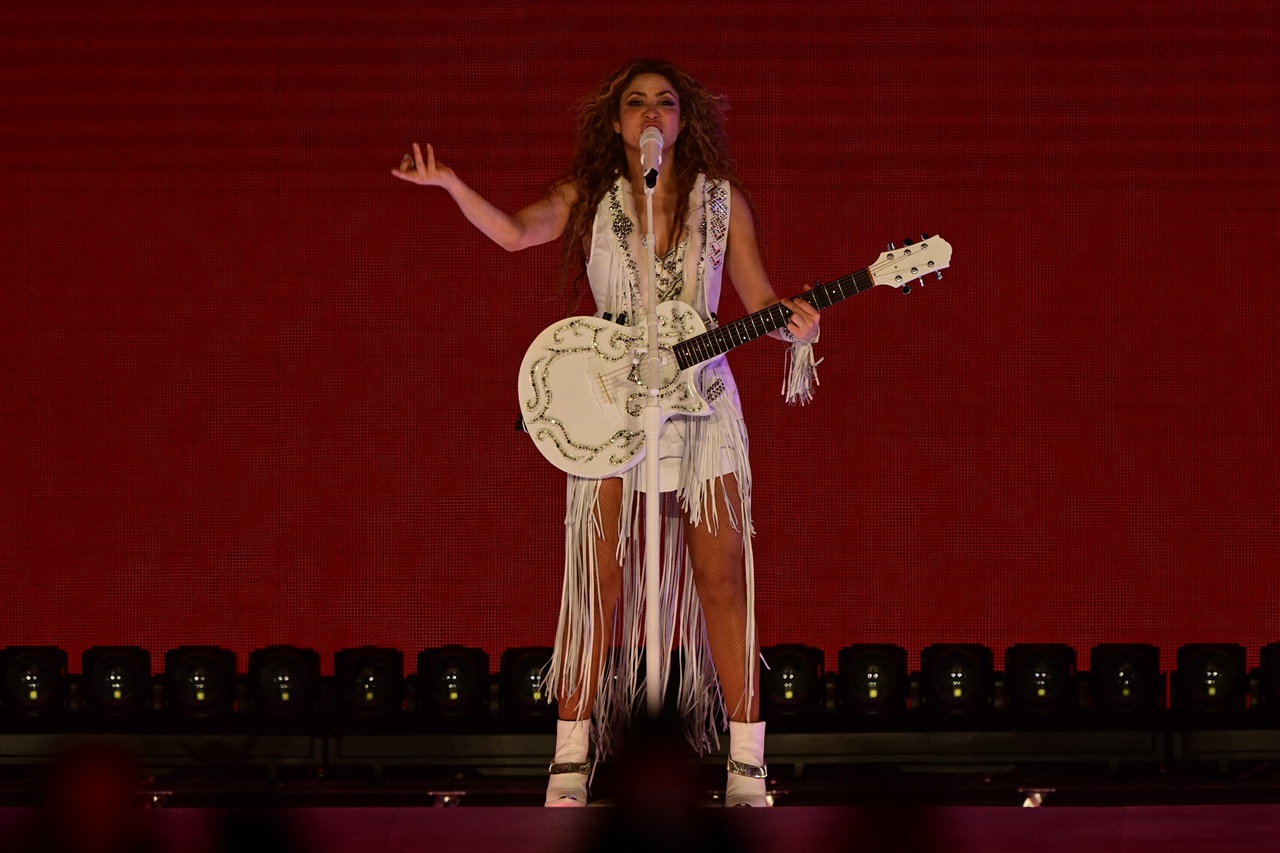
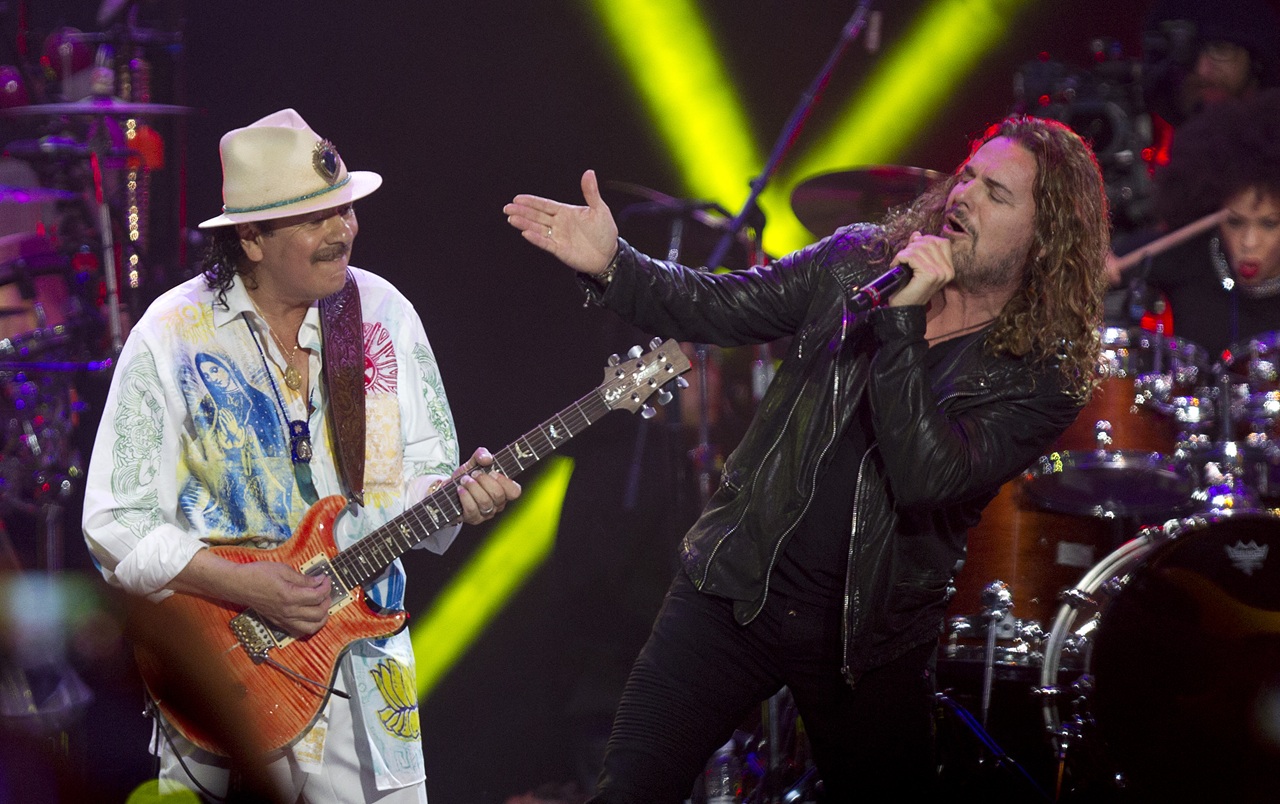

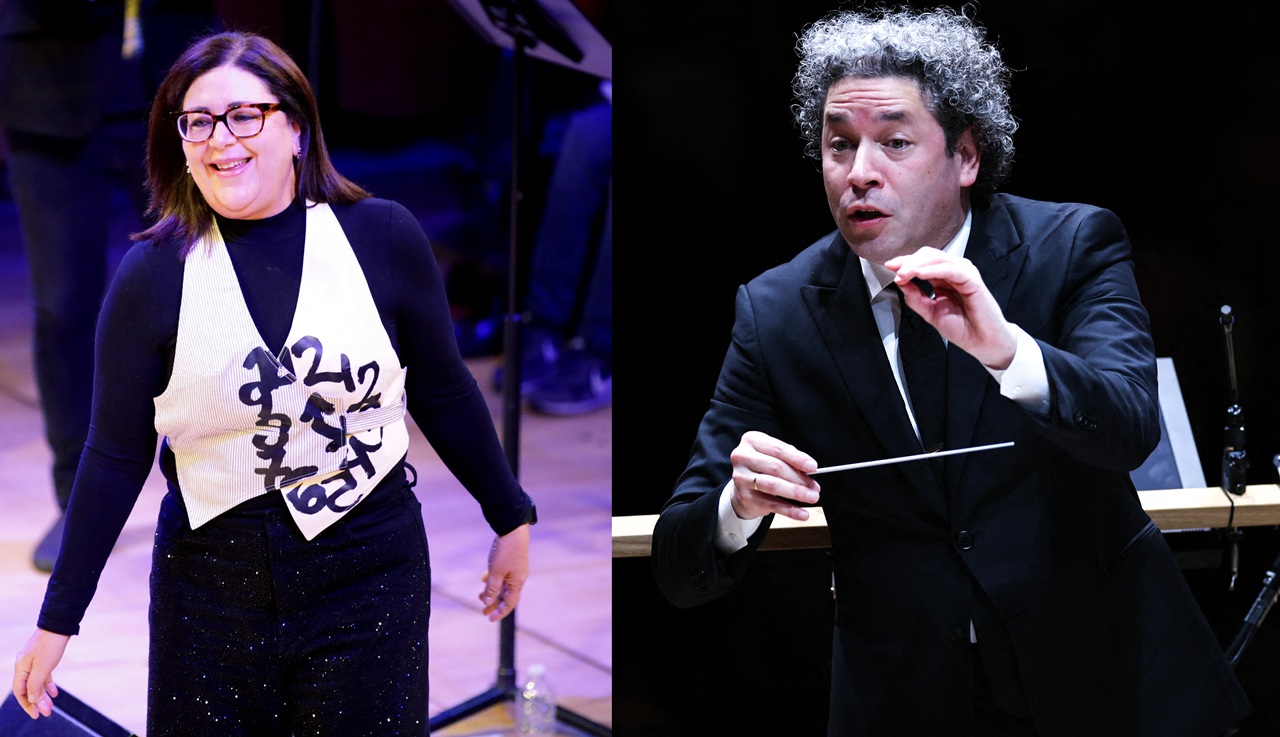



LEAVE A COMMENT: